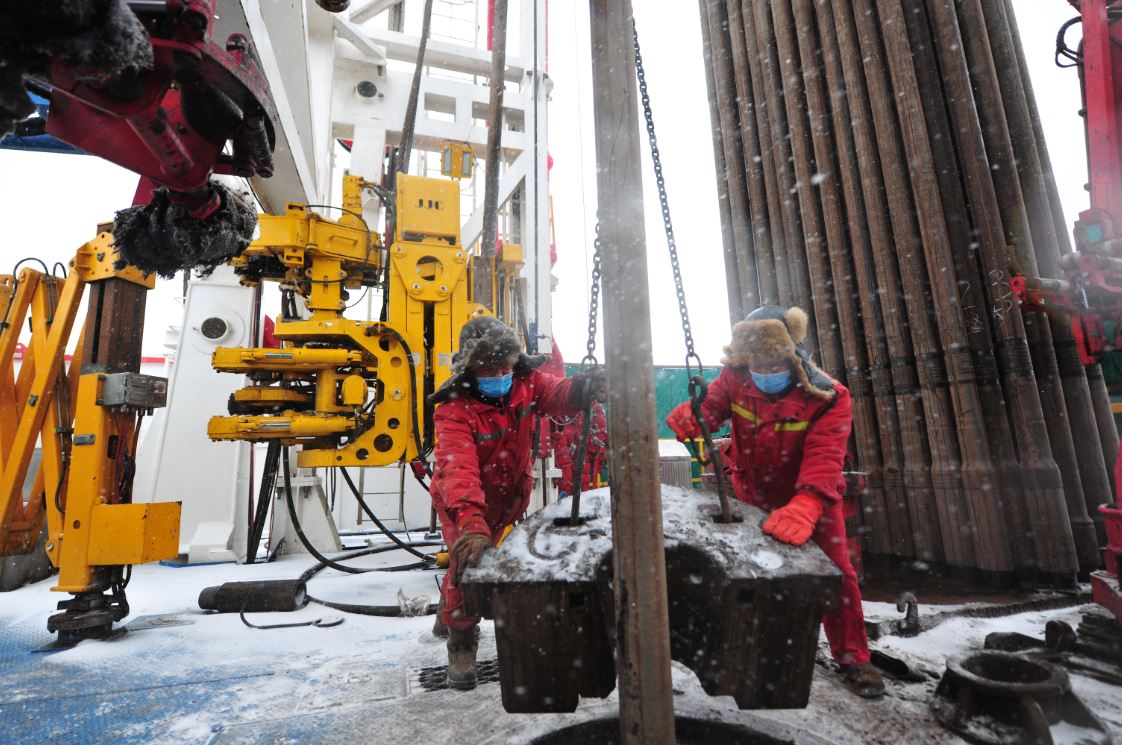Silver lining for China in oil price falls


Companies in aviation and refining sectors to benefit from lower rates
The continued decline in global oil prices may prove beneficial to the Chinese economy and businesses in the aviation and refining sector, analysts said on Tuesday.
Lower oil prices will be beneficial for China, despite the novel coronavirus outbreak, said Li Li, research director of energy consultancy ICIS China.
"While the lower oil prices would hurt the global economy, domestic crude buyers and refinery producers stand to gain from such a scenario," she said.
"The epic oil price plunge reflects the extreme panic of the market, amid rising threats to the global economy from the outbreak."
The International Energy Agency said global oil demand is set to contract this year for the first time in more than a decade as global economic activity stalls due to the outbreak. The sharp downward revision came as oil prices tumbled by as much as a third and were set for their biggest intraday fall in 29 years after Saudi Arabia ignited a crude price war in the market.
According to Nelson Wang, executive director of CICC Research, companies at the receiving end of the oil price swings are poised to benefit the most, such as airlines and refiners.
"Airlines benefit the most in our view, given that jet fuel prices are directly linked to oil prices. Any savings in fuel costs would boost their bottom line instantly without any additional efforts. Refiners are also expected to gain over the medium or long term, although they might also get hurt alongside their upstream peers due to inventory losses. But once oil prices stabilize at a new and lower level, refiners historically tend to see their product prices falling less than the crude prices, thus enjoying a potential margin expansion."
He said China could take advantage of the lower crude prices to start some opportunistic buying to shore up its strategic petroleum reserves (SPR).
However, with domestic crude demand softening and potentially more US oil purchases coming in as part of a trade deal, there could be some structural changes in China's crude purchase: that is, medium or heavy crude could be marginally reduced to make space for US light and sweet oil, he said.
Tang Sisi, an analyst with research firm BloombergNEF (BNEF), said despite uncertainties over oil refining due to the outbreak, the low crude prices will shore up the gross margins of domestic refiners. Refiners will certainly take advantage of the situation and increase their crude purchases. But the growth of China's overall imports depends on storage availability and the recovery of fuel demand, she said.
Luo Zuoxian, head of the intelligence research department under the Sinopec Economics and Development Research Institute, said it is an opportune time to increase crude imports, despite the fact that these might constrain production capacity.
Though crude prices have crashed by more than 30 percent, every dollar per barrel drop in crude prices reduces China's oil import bill as the market will be flooded with cheap oil, he said.
China is currently the biggest crude importer worldwide with a foreign oil dependency ratio of as high as 72 percent. The country has also been stepping up efforts in oil and gas reserve construction in recent years to ensure energy security.
Luo said the government should take advantage of the low crude prices to continuously expand oil reserve construction, encourage commercial reserves and further open up crude imports.
He also emphasized the need to tackle excess domestic production capacity and improve the quality of products.




































